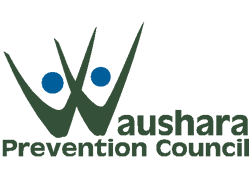Most people are aware of the high costs of alcoholism. After all, no community in the United States can escape the strains that problems related to this disease of the brain place on the quality of community life. But many people do not realize that some of the most serious harm from this addiction is indirect and hidden. Many children whose parents are dependent on alcohol or illicit drugs endure silent suffering.
Children of alcoholics (COAs) are four times more likely than non-COAs to develop alcoholism or drug problems. They are at higher risk than others for depression, anxiety disorders, problems with cognitive and verbal skills and parental abuse or neglect.
Although they are at increased risk, many COAs do not develop alcohol or drug use disorders or other serious problems in their lives. Often, they appear to be resilient, bolstered by protective factors and support of other caring adults in their lives. COAs can be helped whether or not the alcohol-abusing family member is receiving help. Children who cope effectively with alcoholism in their families often rely on support from a nonalcoholic parent, grandparent, teacher, or other caring adult.
Simple acts of kindness and compassion can make a difference for COA’s. By making ourselves available to listen, discuss feelings, share interests and support their efforts to make friends, we can help COA’s cope with their present situations and develop the resilience and skills necessary for their futures. We can tell them that they are not alone, that responsible adults are available to help them, and that millions of others have had similar experiences and have grown up to lead healthy, satisfying lives.
Reminding them that their families’ problems are not their fault and not their responsibility to solve is also very helpful to them. Their jobs are to be children and take good care of themselves; learn the facts about alcohol, tobacco, and drugs; recognize their risks; and learn how to avoid repeating their families’ alcohol abuse patterns. Encourage them to ask for help and that it is a sign of strength to do so. By helping these children break through the barriers of shame, silence, and isolation they can live healthy, happy lives despite their family problems.
For more information about Children of Alcoholics Week call Pat Bero at 920-787-6600.

Comments are closed.